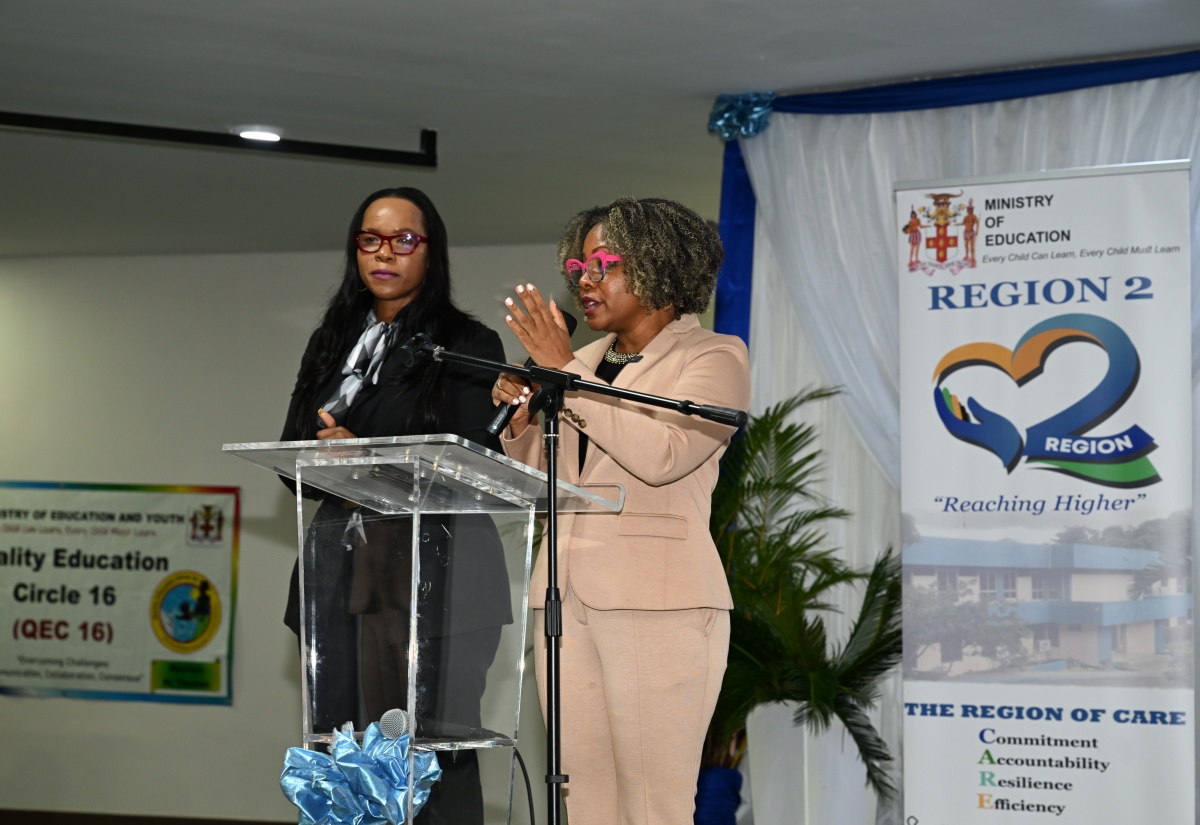Students attending educational institutions that fall under the National School Learning and Intervention Plan (NSLIP) will receive both breakfast and lunch daily starting in the 2025/2026 academic year, which begins September.
Minister of Education, Skills, Youth and Information, Senator Dr. the Hon. Dana Morris Dixon, in making the disclosure said that the intention is to expand nutritional support for the students, who now receive lunch daily.
She noted that the additional meal support is necessary to address the long-standing issues of student hunger, which often hinders classroom participation, learning and even attendance.
She was addressing a Back-to-School Conference for principals and vice-principals from Region Two, covering Portland, St. Thomas, and St. Mary, held at Hideaway at Royalton Blue Waters in Falmouth, Trelawny, on Tuesday (July 15).
“We understand that where we have schools with children who may not be performing at the level we want, there are other factors other than just training teachers that we need to do,” Mrs. Morris Dixon pointed out.
“We have to provide them (students) with the nutrition that they need and that’s why we are doing the additional nutrition support for those schools,” she added.
NSLIP is designed to improve learning outcomes in schools, particularly those in underserved areas. It was introduced to guide curriculum management and learning recovery efforts following the disruptions caused by the COVID-19 pandemic.
It encompasses strategies such as summer school, extra lessons, and parental engagement to address learning gaps and improve student performance.
Turning to the Rural School Bus Programme, the Minister said she is optimistic that the initiative will alleviate transportation challenges faced by students in remote communities across the country.
The Government is procuring 110 buses to operate across 100 routes, covering 258 of the more than 850 rural schools across the island. This intervention is expected to directly impact approximately 328,000 students by offering reliable transportation and reduce absenteeism.
“It’s expensive for a lot of our children in rural Jamaica, and they are already disadvantaged. We don’t want to keep them at that disadvantage,” Dr. Morris Dixon said.
Meanwhile, with the Government reviewing the Programme of Advancement Through Health and Education (PATH) to strengthen its effectiveness, the Minister is encouraging school leaders to provide feedback on how the programme can be restructured.
“You’re not going to get the results if a child comes two or three times a week or when the parent has money, and this is a reality for many of our schools in Region Two. This is the time for you to give your suggestions in terms of how we can revamp PATH to better help our children,” the Minister said.


